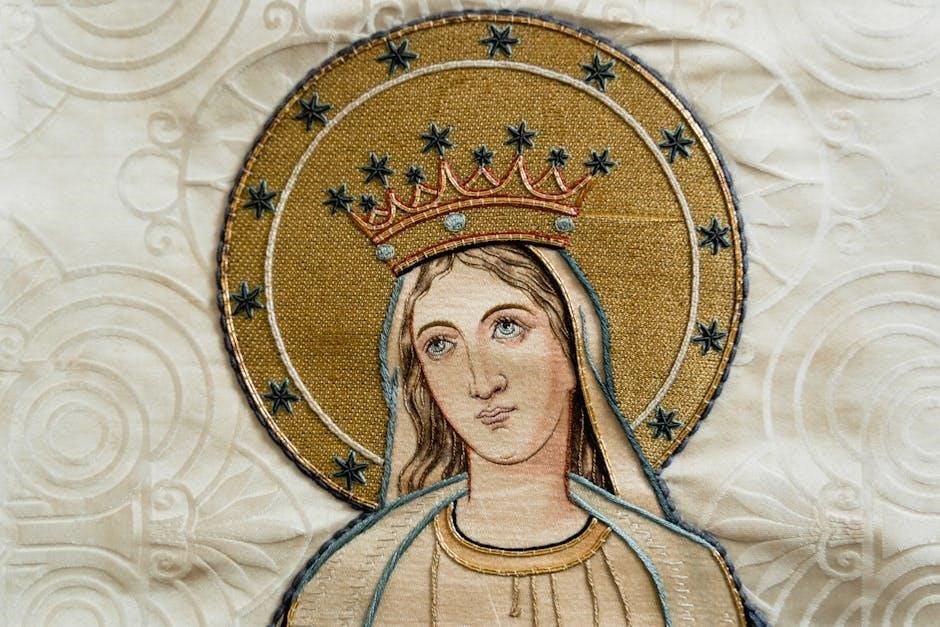The Bible prohibits worship of false gods, emphasizing monotheism and condemning idolatry. False gods, like Baal and Asherah, were worshipped by ancient nations, leading to spiritual corruption. The Scriptures warn against such practices, highlighting the importance of devotion to the one true God.

Definition and Significance of False Gods in the Bible
False gods in the Bible are deities worshipped instead of the true God, symbolizing idolatry, spiritual corruption, and humanity’s rebellion against divine authority, leading to separation from God.

Understanding False Gods in Biblical Context
In the Bible, false gods represent idols or deities worshipped by nations surrounding Israel, often symbolizing humanity’s rebellion against the one true God. These gods, such as Baal and Asherah, were deeply integrated into the cultural and religious practices of ancient Near Eastern societies. They were typically associated with fertility, war, or natural phenomena, and their worship often involved rituals and sacrifices. The Bible condemns such idolatry, emphasizing its spiritual corruption and the futility of trusting in created things rather than the Creator. False gods are portrayed as powerless, crafted by human hands, and incapable of providing true salvation or guidance. Their presence in biblical narratives serves as a theological contrast, highlighting the uniqueness and sovereignty of the God of Israel.
Theological Implications of Idolatry
Idolatry in the Bible is not merely the act of worshipping false gods but a profound spiritual rebellion against the one true God. It represents a rejection of God’s sovereignty and a distortion of humanity’s purpose to worship and glorify Him. Theological implications of idolatry include spiritual corruption, as it leads individuals and communities away from the divine covenant and into false beliefs and practices. The Bible emphasizes that idolatry is not just a physical act but a matter of the heart, reflecting a departure from genuine faith and trust in God. This theological understanding underscores the severity of idolatry, as it disrupts the relationship between God and humanity, leading to moral decay and spiritual exile. Thus, the condemnation of idolatry serves as a call to repentance and fidelity to the one true God.
Major False Gods Mentioned in the Bible
The Bible identifies major false gods like Baal, Asherah, Ashtoreth, and Molech, each associated with fertility, war, or sacrifice, highlighting their significance in ancient idolatrous practices.
Baal: The Canaanite God of Fertility
Baal, a prominent Canaanite deity, was worshipped as the god of fertility, agriculture, and storms. His cult involved ritualistic practices and sacrifices, often linked to immoral behaviors. The Bible condemns Baal worship, noting its corrupting influence on the Israelites, as seen in episodes like the golden calf and conflicts with prophets like Elijah. Baal’s significance is evident in his widespread worship across the ancient Near East, making him a central figure in biblical warnings against idolatry.
Asherah: The Canaanite Goddess of Fertility
Asherah, a Canaanite goddess of fertility and motherhood, was revered in the ancient Near East. Often associated with Baal, she symbolized fertility and was worshipped through sacred poles. The Bible condemns her idolatry, particularly in Exodus and Judges, where Israelites were tempted to adopt Canaanite practices. Asherah’s worship involved rituals aimed at ensuring agricultural prosperity, reflecting her role as a fertility deity. Her influence was significant, leading to repeated warnings against idolatry in biblical narratives. The prophets emphasized the exclusivity of Yahweh, contrasting Him with false deities like Asherah, who represented counterfeit spiritual practices. This underscores the theological struggle against polytheism and the promotion of monotheistic worship central to biblical teachings.
Ashtoreth: The Goddess of War and Fertility
Ashtoreth, a prominent Canaanite deity, was revered as both a goddess of war and fertility, embodying dual roles in ancient Near Eastern religion. Her association with war and fertility symbolized the cyclical nature of life and conflict. The Bible mentions her in Judges 2:12-13, highlighting Israel’s idolatrous practices. Ashtoreth’s worship often involved rituals to ensure both agricultural abundance and military success. Her cultic practices were deeply intertwined with Baal’s, reflecting a shared religious framework. The biblical narrative condemns the Israelites’ adoption of such idolatrous practices, viewing them as a violation of the First Commandment. This underscores the theological tension between monotheistic worship and polytheistic traditions prevalent in the region. Ashtoreth’s influence represents the broader struggle against idolatry in biblical history, emphasizing the exclusive devotion to Yahweh.
Molech: The Ammonite God of Sacrifice
Molech, an Ammonite deity, was notoriously associated with human sacrifice, particularly the offering of children. Worshippers would place their infants in the red-hot arms of a bronze statue, where they were burned alive. This horrific practice was deeply condemned in the Bible, with explicit warnings in Leviticus 18:21 and 20:2-5. Molech’s cultic rituals were seen as abhorrent, violating the moral standards set by God. The Bible portrays Molech worship as a form of idolatry that threatened Israel’s covenant with Yahweh. By rejecting Molech, the Israelites were called to uphold the sanctity of life and exclusive devotion to their true God. This false god represents the darkest aspects of ancient idolatry, emphasizing the theological importance of rejecting such practices.
The Role of False Gods in Biblical Narratives
False gods played a significant role in shaping biblical stories, often symbolizing rebellion against Yahweh. Narratives like the golden calf and Elijah’s confrontation with Baal highlight their influence and the consequences of idolatry.
The Story of the Golden Calf (Exodus 32)
While Moses was on Mount Sinai receiving the Ten Commandments, the Israelites grew impatient and pressured Aaron to create a tangible deity. Using their gold jewelry, Aaron fashioned a golden calf, which the people worshipped, declaring, “These are your gods, Israel, who brought you up out of Egypt” (Exodus 32:4). This act directly violated the first commandment, provoking God’s anger. Moses, upon descending and witnessing the idolatry, smashed the tablets of the covenant. The calf was destroyed, and the Israelites faced severe consequences for their rebellion. This narrative underscores the dangers of idolatry and the importance of remaining faithful to the one true God. It serves as a stark reminder of humanity’s tendency to seek comfort in tangible, false deities rather than trusting in the invisible, omnipotent Creator.

Elijah and the Prophets of Baal (1 Kings 18)
In 1 Kings 18, Elijah confronts the prophets of Baal during a severe drought in Israel. The prophet Elijah, representing the true God, challenges the 450 prophets of Baal to a public contest on Mount Carmel. Each side prepares an altar and sacrifices a bull, calling upon their deity to ignite the fire. The prophets of Baal pray vehemently but fail to elicit a response. Elijah, after mocking their inability, prays to the true God, who immediately sends fire to consume the sacrifice, wood, and stones. This dramatic event confirms the superiority of the one true God and leads to the defeat of the false prophets of Baal. The narrative underscores the futility of idolatry and the power of unwavering faith in the Almighty.

Theological Implications and Warnings Against Idolatry
The Bible strongly condemns idolatry, emphasizing its spiritual corruption and separation from God. Idolatry is seen as a rejection of the one true God, leading to moral decay and divine judgment. Theological warnings highlight the exclusivity of worshiping Yahweh, demanding undivided allegiance and rejecting false deities. This underscores the central theme of monotheism in biblical theology.
Biblical Condemnation of Idolatry
The Bible explicitly condemns idolatry, labeling it a grave sin against God. Exodus 20:3-5 prohibits worshiping false gods, declaring the exclusivity of Yahweh. Deuteronomy 7:25 warns against desiring or worshipping idols, which leads to spiritual corruption. Idolatry is seen as rebellion, breaking the first commandment and separating people from God. The prophets repeatedly denounce idol worship, linking it to moral decay and divine judgment. Theological warnings emphasize idolatry’s destructive nature, urging believers to avoid false gods and remain faithful to the one true God. This condemnation underscores the Bible’s central theme of monotheism and the importance of undivided allegiance to Yahweh.
Warnings Against Idolatry in the Prophets
The prophets in the Bible issued stern warnings against idolatry, calling it a betrayal of God’s covenant. Hosea condemned the Israelites for turning to Baal and other false gods, warning of divine judgment and exile. Elijah confronted the prophets of Baal, demonstrating God’s superiority and calling the people back to exclusive worship of Yahweh. Isaiah and Jeremiah denounced idolatry as foolishness, emphasizing that idols were mere human creations. Ezekiel linked idolatry to moral corruption and spiritual adultery, urging repentance. The prophets consistently highlighted the futility of idol worship, contrasting it with the living God who alone is worthy of devotion. Their warnings underscored the theological gravity of idolatry, urging Israel to remain faithful to the one true God and avoid the consequences of spiritual rebellion.
The Bible’s condemnation of false gods underscores its central theme of monotheism and exclusive devotion to Yahweh. From Baal to Molech, these idols represented spiritual rebellion and moral corruption. The prophets, such as Elijah and Hosea, delivered powerful warnings against idolatry, emphasizing its consequences and calling for repentance. The theological implications of idolatry remain relevant today, serving as a reminder of the importance of faithfulness to the one true God. By examining the narratives and warnings throughout Scripture, we gain a deeper understanding of God’s holiness and humanity’s tendency to stray. The Bible’s teachings on false gods continue to guide believers in maintaining a pure and unwavering devotion to the Almighty.